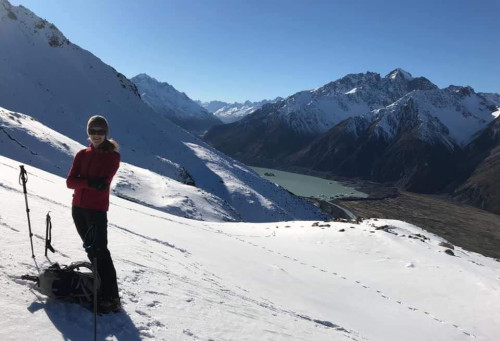
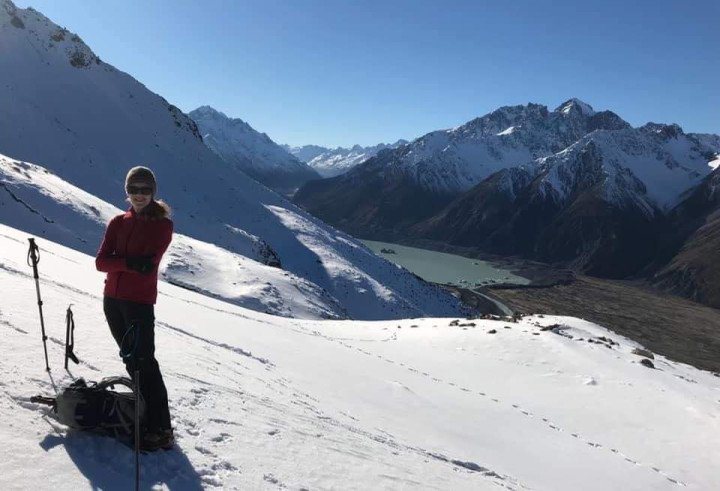
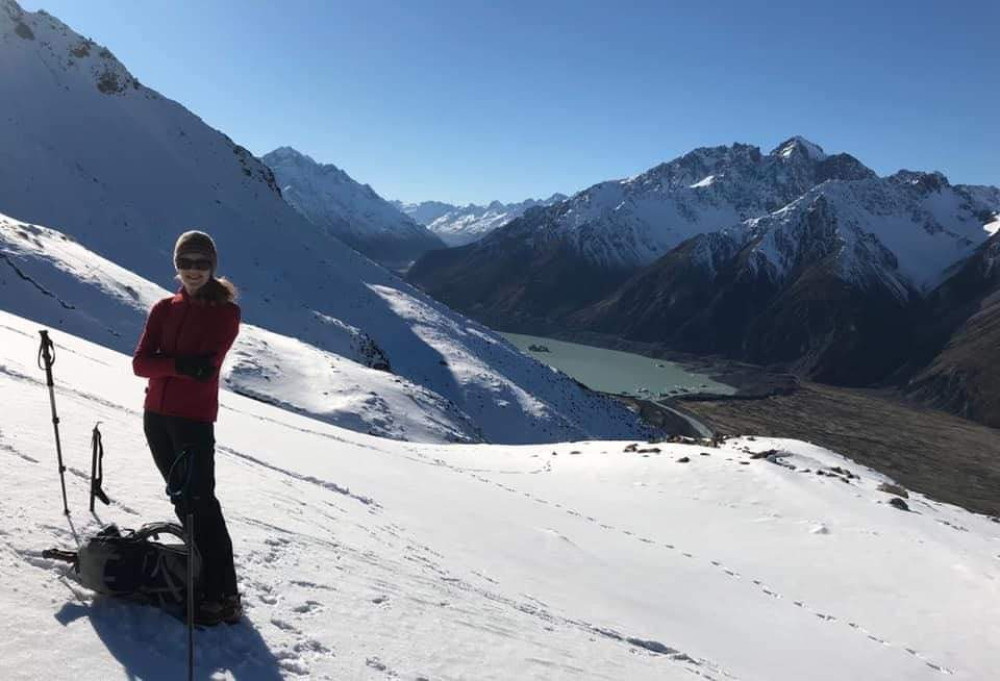
Nurse Practitioner Fiona Blair on the side of Mt Wakefield (Aoraki/Mount Cook National Park) with Tasman Glacier and terminal lake below
Nurse Practitioner Fiona Blair on the side of Mt Wakefield (Aoraki/Mount Cook National Park) with Tasman Glacier and terminal lake below
Nurse Practitioner Fiona Blair started nursing straight off a dry stock hill country farm in the Waikato, choosing to train at Auckland’s Greenlane Hospital as she could see sheep on One Tree Hill from the hospital. She moved to primary care quite early in her career and really enjoys the long term connection to patients offered by general practice.
Fiona moved to the South Island in the early 90’s and found her place here, first in Nelson and then Christchurch where she worked in accident and medical clinics as well as general practice. She also spent time on project committees and Primary Health Organisation Boards, enjoying the opportunity governance positions gave her to influence population health. After the Christchurch earthquakes, she moved to locum nursing roles, so she was available for humanitarian work with New Zealand Red Cross. It was during this time, that Fiona completed post graduate studies, first in travel and tropical medicine and then her nurse practitioner training. She has been working as part of the South Westland Area Practice team for a year.
Fiona says, “I look after half of the enrolled population of South Westland Area Practice, mostly people in the north of our region which runs from Hari Hari down to Haast. Like a general practitioner (GP) I work across all age groups, seeing the many and varied health conditions seen in a rural general practice. I work alongside skilled Rural Nurse Specialist colleagues and an amazing administration team.”
“My GP colleague, Dr Calvin Davis works mostly in the south, and we have regular meetings at the main clinic in Franz Josef. Dr Tom Barry from Greymouth also works at our Hari Hari clinic once every fortnight, so we have a skilled team of professionals serving our diverse population. We can also refer to each other if we would like another opinion, advice, or specialist investigations like point of care ultrasound.”
Nurse practitioners are highly skilled health practitioners who have advanced education, clinical training and demonstrated competency. They have the legal authority to practice beyond the level of a registered nurse. They combine their advanced nursing knowledge and skills with diagnostic reasoning and therapeutic knowledge providing care to people with both common and complex conditions.
“For the South Westland community, there are definite benefits to both having a nurse practitioner, a female provider and to having another personality in our area. It’s good to offer choice. My approach is from a humanist nursing perspective, and informed by 35 years working in primary care. I am interested in many different areas of health care including chronic conditions such as COPD (chronic obstructive pulmonary disease) and diabetes, travel medicine, menopause care and minor injuries.”
“It’s the variety general practice offers that I enjoy and the opportunity to really connect with, and advocate for, people from any walk of life. I enjoy that each of the five clinics (Hari Hari, Whataroa, South Westland Area Practice, Fox Glacier and Haast) have a slightly different population and this keeps me interested and on my toes!”
“To anyone considering a nurse practitioner career pathway look at getting as broad a range of experience as possible before starting the training, and registered nurse prescribing is a great stepping stone. Be inquisitive, a good listener and observer as well as being prepared to be a fierce advocate for your patients,” says Fiona.
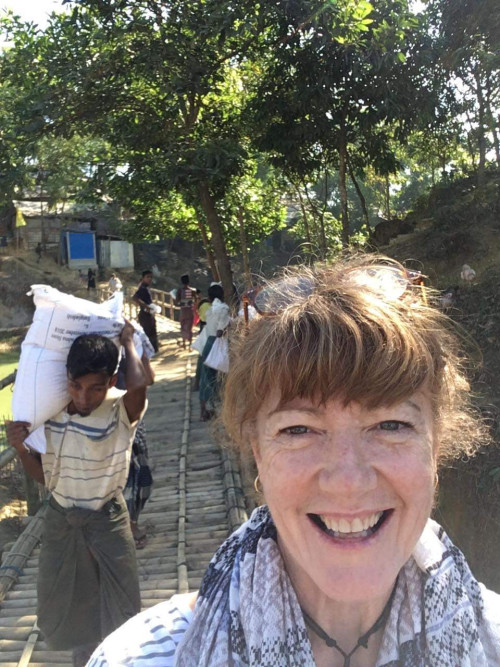
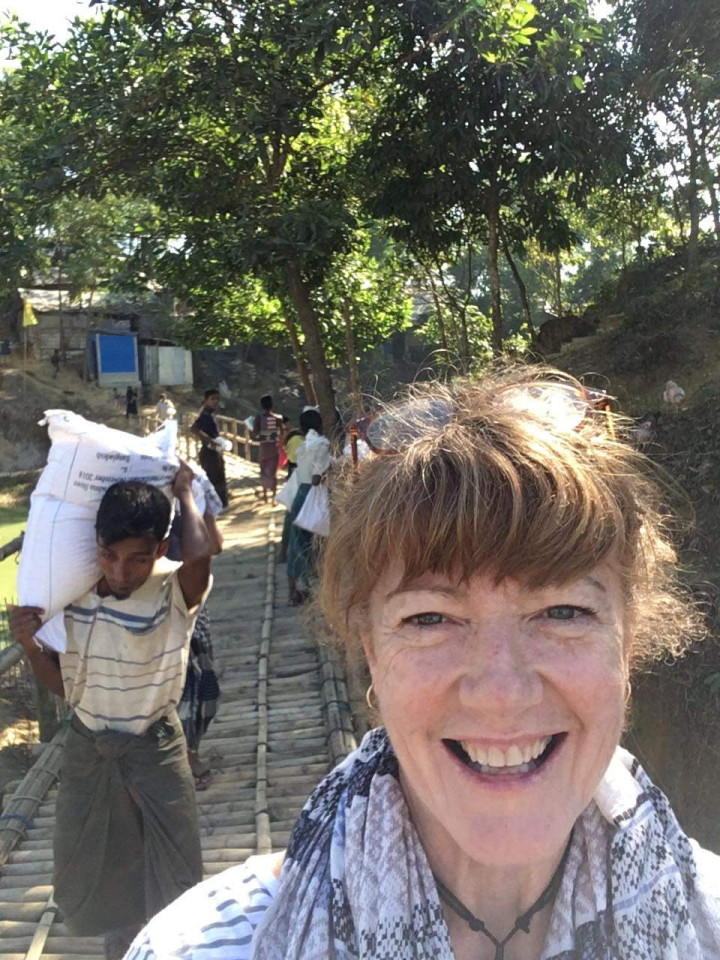
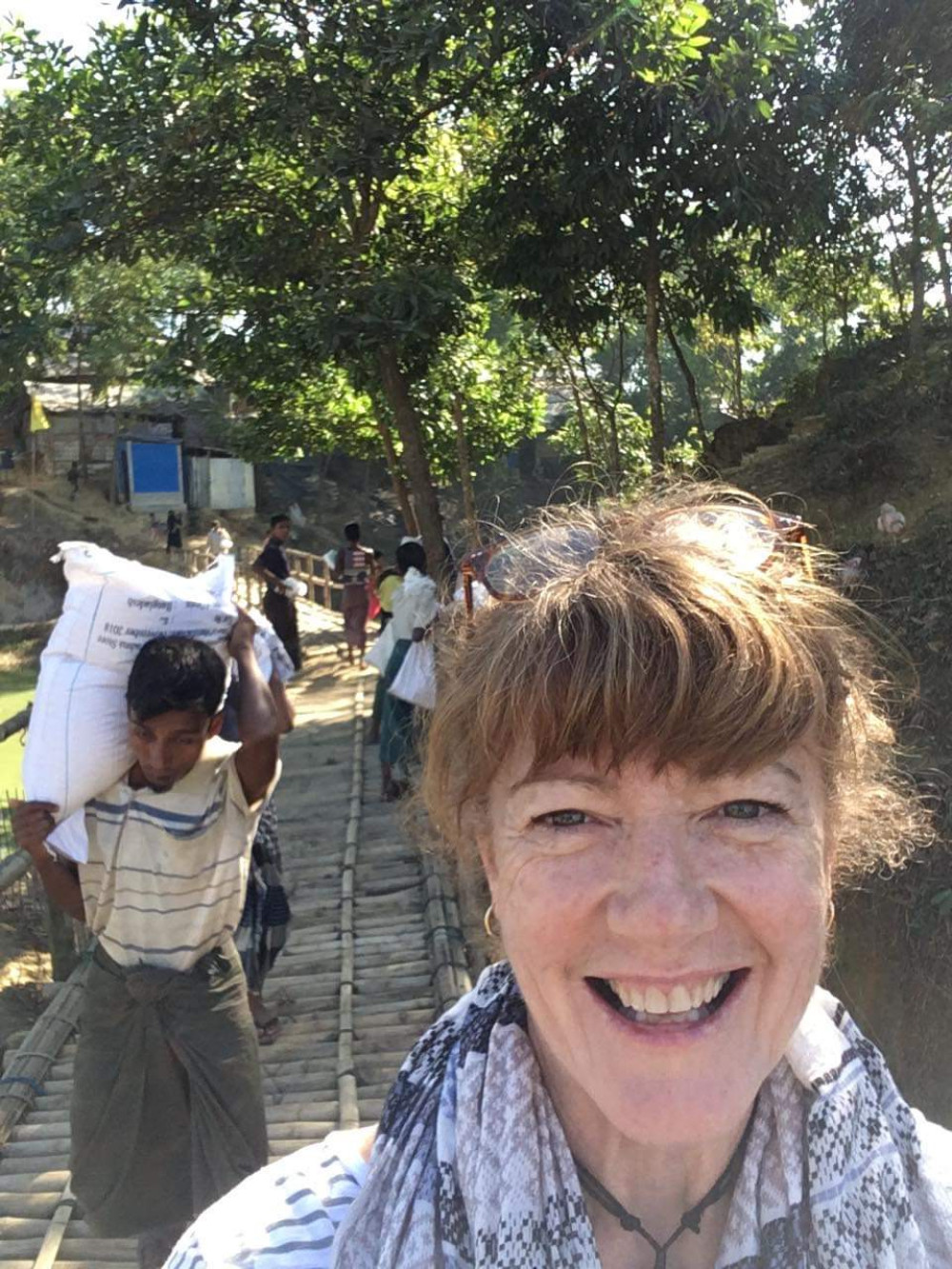
Nurse Practitioner Fiona Blair at the Kutapulong refugee camp in Bangladesh.
Nurse Practitioner Fiona Blair at the Kutapulong refugee camp in Bangladesh.
Nurse practitioner role
Nurse practitioners are highly skilled health practitioners who have advanced education, clinical training and demonstrated competency. They have the legal authority to practice beyond the level of a registered nurse.
They combine their advanced nursing knowledge and skills with diagnostic reasoning and therapeutic knowledge. They provide care for people with both common and complex conditions.
Many nurse practitioners work in primary care where, like general practitioners, they may be the lead health care provider for health consumers and their families/whānau. Others work for Health New Zealand | Te Whatu Ora, for non-government organisations, or for Māori and iwi providers. Nurse practitioners are more likely to work in rural areas and in underserved communities.
Nurse practitioners:
- provide a wide range of assessment and treatment interventions.
- work across health care settings and can influence health services and the wider profession.
- have a broad scope of practice and have the same prescribing authority as medical practitioners (doctors).
- are funded and subsidised for the treatment they provide.